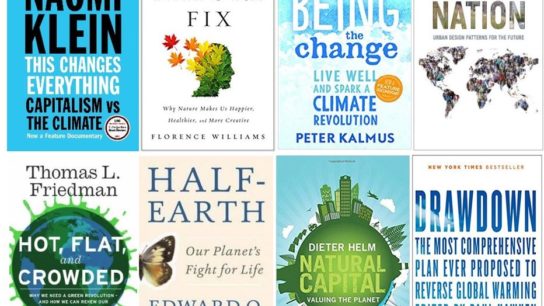It is easy to attach an “eco-friendly” or “green” label to a product, even if the only thing recyclable in it is the packaging. This act is called greenwashing and it occurs when companies or organisations falsely present themselves as environmentally friendly or sustainable, often through misleading or deceptive marketing tactics, while their actual practices and impact on the environment remain harmful or unchanged. With many making bold claims about eco-friendly goods, consumers or business owners who want to be part of a sustainable supply chain must research the sustainable customs of entities they want to do business with. How do they do that? Here are five ways to spot environmentally conscious companies from those that aren’t.
—
1. Outline Your Sustainability Standards
Sustainability is no new concept, but the adoption of it is for most businesses. As a result, many companies have yet to fully make their operations sustainable. One reason for this is that in most countries, adopting sustainable practices is not mandatory.
Ideally, you would find a partner that matches your commitment to a sustainable environment, but this is not always feasible. Carefully map out a checklist, asking yourself these questions as a reference in crafting your sustainability barometers:
- Does the company source sustainable raw materials?
- Does it create waste during manufacturing?
- Does it have waste management or recycling programmes?
- Does it use clean energy?
- Does it track its greenhouse emissions and have strategies to curb them?
When setting a standard for sustainability, tone down your expectations and provide wiggle room for considerations. One supplier could be sourcing materials locally but use fossil fuels to process them and simply buy renewable energy certificates (RECs) to offset it. It is like having a grocery list but buying alternatives when ingredients are missing. A checklist can save time and quickly eliminate suppliers or manufacturers that do not meet certain sustainability standards.
2. Ask Your Burning Questions
Your list of questions offers potential partners an opportunity to expound on their commitments to protect the environment. Hearing more helps you determine which answers are deal-breakers, allowing you to whittle down the companies you want to associate yourself or your organisation with. Here are some example questions to guide you in this part:
- Does your company have specific sustainability metrics and objectives?
- How does it measure or track the environmental impact of the entire process?
- Does it set reduction goals?
- How does it show transparency in its sustainability policies?
It is best to organise your queries into a prequalification questionnaire for documentation. Asking these questions through email, virtual interviews or other channels can feel uncomfortable. However, doing so will connect you with the most sustainable partners and help you achieve your environmental aims.
3. Look for Sustainability Credentials

Organisations with environmental consciousness at their forefront actively participate in sustainable programmes, allowing them to secure certifications they can attach to their brands.
One example is Energy Star, which honours organisations with outstanding contributions to the planet. Companies like Andersen Corp., Burton Energy Group, and Consumers Energy are recipients of Partner of the Year environmental labels for their exceptional efforts in protecting the Earth and creating products and services that provide real solutions to climate change.
Using this as a baseline, look for sustainability certification in your supplier or manufacturer. Such labels from reputable organisations or agencies are proof that the company you are looking at has solid and genuine sustainable practices in place.
4. Check for a Certified Environmental Management System
An environmental management system (EMS) encompasses the rules, plans and practices summarising how an organisation interacts with the environment. Companies must have EMS frameworks to use as guidelines in implementing and tracking environmental performances.
The International Organization for Standardization (ISO) is an international body that creates these worldwide standards. The latest revision to the EMS is ISO 14001:2015. A company that passes the evaluation for EMS has an eco-friendly track record and is diligent in managing its impact. It also means it is less likely to be found liable for any environmental negligence.
Not all organisations have an EMS, but you can do business confidently in companies that have one. It is good to have a vote of confidence from the ISO.
You might also like: EO Guides: How To Introduce Recycling Into Your Business
5. Research for Compliance With Environmental Legislation

Although organisations self-impose sustainability, governments often have environmental laws that, if broken, will lead to legal consequences. The US, for example, has several laws in place, including the Clean Air Act, the Resource Conservation and Recovery Act, and the Clean Water Act and the Environmental Protection Agency (EPA) is in charge of handling any violations,such as heavy smoke emissions, materials dumped into a maintenance hole, or coloured discharges on the ground.
Ensure that a business you are interested in partnering with has not been prosecuted for breaking environmental laws. A brief online search with the company’s name may bring up past results for sanctioned offences. Alternatively, you can contact your local environmental agency to inquire about the company.
6. Assess Their Social Responsibility Policy
Corporate social responsibility (CSR) refers to an entity’s commitment to conduct business ethically, considering the social, economic and cultural impact alongside environmental consequences. It is closely related to sustainability in that improving workplace diversity can lead to inclusive leaders with higher cultural intelligence able to manage and implement better green policies and strategies.
CSR’s bottom line is “people, planet and profit,” meaning entrepreneurs can and should grow their businesses without harming the Earth or exploiting their employees. You can directly ask the entity what programmes it has to make a difference in its community and the world. A socially responsible entity takes actionable steps to help society and the environment.
Grow Your Business With Sustainable Partners
Many organisations are choosing sustainability over profits. Such a move has influenced consumer decisions, with many wanting to buy products from sustainable suppliers or manufacturers.
Many who do not understand sustainability in action readily claim they sell ethical products. That’s why you must double-check which brands are truly eco-friendly. Take steps to find companies that share the goal of protecting the environment.
Featured image: Markus Spiske/Unsplash
You might also like: Why Grassroots Organisations Are Essential for Sustainability













